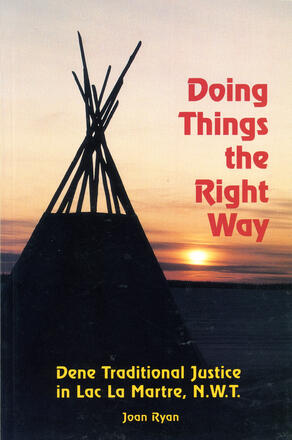
Doing Things the Right Way
Dene Traditional Justice in Lac La Martre, NWT
La description
Joan Ryan and her research team have carefully documented Dogrib traditional justice as it has been practised over the past century. Relying upon information received from the elders of Lac La Martre, Northwest Territories, they have unearthed a sophisticated body of Dogrib law, the understanding of which has important implications for contemporary ways in which the Dogrib people and the department of justice can deal with social control.
The material is organized and presented in a way that makes it accessible to both Dene and non-Dene readers alike. The methodology of the book is one of "participatory action research," in which the community itself owned and directed the research, training, and outcomes.
By exposing the very different values and legal systems of the Dene and non-Dene, this book sets the framework for the possibility of a Dene-controlled and culturally appropriate justice system. The book will be of value to those interested in native self-government, constitutional rights, and aboriginal law, as well as to all those involved with First Nations peoples.
Reviews
I would not hesitate to recommend this text to any person interested in the Dogrib people and culture area, ethnohistory, participatory action research, and aboriginal justice in Canada. Doing Things the Right Way is a good read.
—Allan L. Patenaude, Arctic
Ryan’s research project in a remote Dogrib community brings both valuable insight to the issue of narrative insight and a unique glimpse into the workings of a small aboriginal society in the North . . . This book provides a compelling example of how our systems fails that native need to restore harmony
—The Globe and Mail